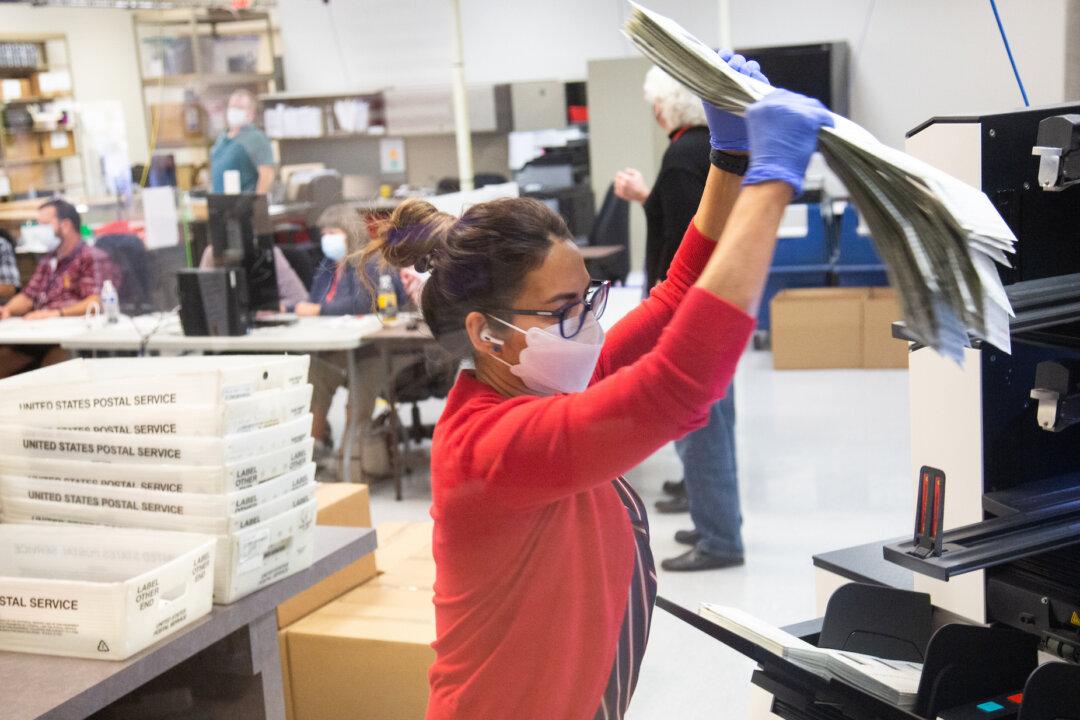The Arizona Democratic Party filed a lawsuit on Thursday seeking to stop the state’s Senate from carrying out an audit of the 2020 election results in Maricopa County.
The complaint (pdf), filed in Maricopa County Superior Court, comes just before the audit is set to begin on Friday. In preparation, 2.1 million ballots, as well as voting equipment that includes 385 tabulators, were delivered to the Veterans Memorial Coliseum in Phoenix, the site of the planned audit.




